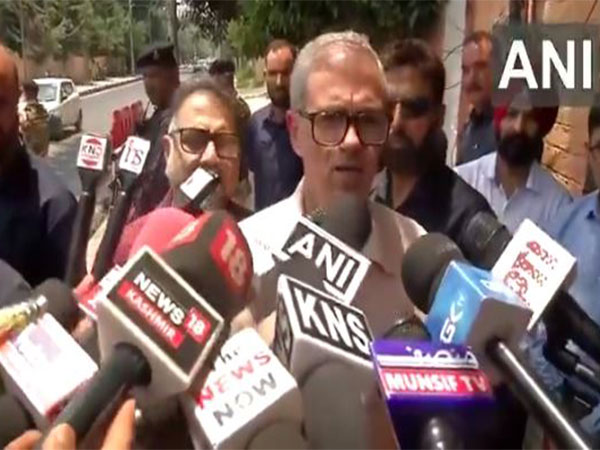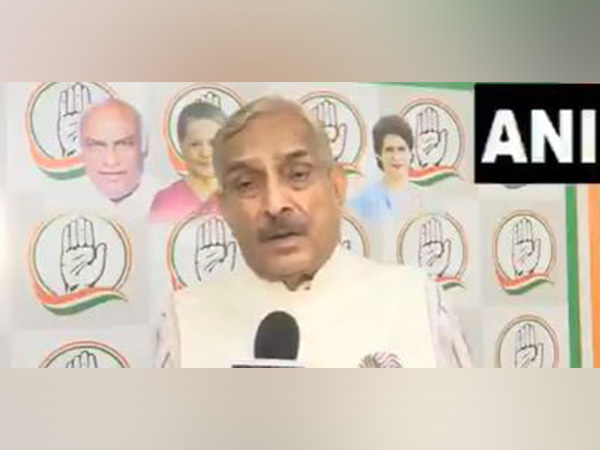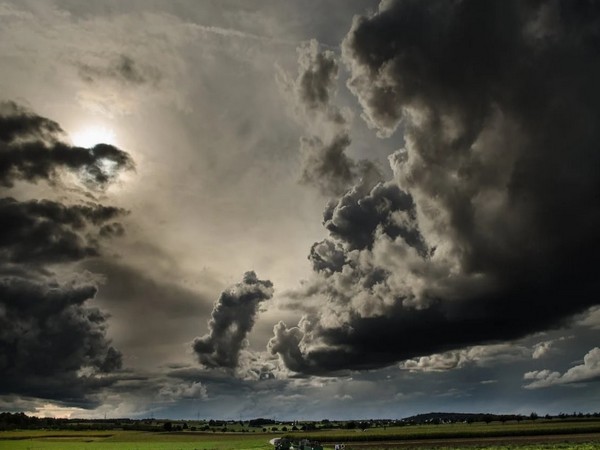
"Clean fuel, clear change": Women in Andaman and Nicobar share their Ujjwala journey
Jun 12, 2025
Port Blair (Andaman and Nicobar) [India], June 12 : Women across the Andaman and Nicobar Islands are witnessing a profound transformation in their daily lives under the Pradhan Mantri Ujjwala Yojana (PMUY). Access to LPG under this scheme has replaced years of struggle with smoke-filled kitchens, erratic fuel supplies, and health concerns.
Prema, a beneficiary from Calicut village in Port Blair said, "I got the cylinder under the Ujjwala scheme in 2021. Earlier that I faced a lot of difficulties, like I used to cook food in 'Chulha' and later in stove came. We faced difficulties also because the availability of kerosene was difficult, and then in 2021, I benefited from the Ujjwala scheme. Now things are very good. There is no difficulty in cooking food. Earlier, it was very difficult to cook."
She added, "Earlier, when it used to rain, all the wood used to get wet, and it used to burn with great difficulty. There used to be a lot of smoke."
Devi, who received her connection in 2018, shared a similar experience: "Before Ujjwala came, we used to cook on a wood stove. It was very difficult, there was a lot of smoke, and children used to fall sick frequently. Because of the smoke, the children couldn't go anywhere. Getting the Ujjwala connection felt really good."
She further added, "I felt really good after getting the Ujjwala connection. The CCS distributor did a great job. If you give a missed call, you receive an OTP, and within two days they deliver the cylinder. Thanks to CCS and IOC. My heartfelt thanks to the Modi government."
Recalling her earlier struggles, Devi said, "I got married in 2013. For two years, we lived in a joint family. Then my mother-in-law said we would have to live separately. So we moved into a rented place. We didn't even have a stove. At that time, I wondered what we would do. My mother made a mud stove for me, and we used wood to cook. When it rained, the wood would get wet, and it became very difficult. Even making tea for guests was a challenge. I went through a lot of hardship. I used to think of God, wondering when my troubles would end. Then CCS provided a gas connection through IOC, and that was a big relief."
Kiran from Trinket village, who got her connection in 2019, said, "Earlier, we used to burn wood. We had to go to the forest to collect it, and it made us late in giving tiffin to the children. But now, food gets cooked quickly. Since I don't spend all my time in the kitchen anymore, I use that time for tailoring. So that time is saved.'"
Sura Bibi from Calicut village said, "I got to know about the Ujjwala connection in 2018. When the scheme came to our Panchayat, we benefited from it. Before that, I used to use kerosene, but then that also stopped. After that, we used to go to the forest and collect firewood. It was very difficult for us. The rains made things even harder. When guests came home, even making a single glass of tea for them was a big problem. When I learned about the Ujjwala scheme, I took advantage of it and also informed other women about it."
She continued, "We don't need to go out much anymore. We spend the saved time happily with our family. After that, if there's any work to do, whether it's cooking or something else, we take it up and do it. We also feel healthier than before because earlier, the smoke used to cause us a lot of trouble, and it affected the children too. The whole house would get darkened. The entire house and utensils would turn black because of the smoke."
Shifa Naushad from Bambooflat, who received her connection in November 2023, described her earlier challenges, "Earlier, things were very difficult because we used to cook on a chulha (traditional stove). Even getting firewood for the chulha was very hard. The forest department wouldn't give us wood or anything. After that, we used kerosene, we used to collect kerosene and light the stove with it. Then we started using an induction stove, but even that had its issues. There were frequent electricity problems--sometimes there was power, sometimes not. The electricity bill was also very high."
She added, "Also, when we cooked on the chulha, it used to take a lot of time. If we knew guests were coming, we had to light the chulha in advance, but it would go cold by the time they arrived. And if someone came suddenly, it would take a long time to get it going. The smoke used to blacken all the utensils. We had to constantly blow air to keep the fire burning, which caused chest pain. We faced a lot of problems like this."
"Now that we've received the Ujjwala connection, things have become much easier. We can now spend time with our family. Earlier, we were stuck with the chulha all the time and hardly got to spend any time with our family. There used to be a burning sensation in the eyes. The children also used to get coughs. I used to keep coughing while working."
"With the connection, I got the stove and pipe for free. They also gave one filled cylinder for free. Just 2-3 days after I applied, they came and provided everything."
Behind each of these women's stories is the transformative effort of IndianOil, which has been instrumental in changing lives across the Andaman & Nicobar Islands through the Pradhan Mantri Ujjwala Yojana (PMUY). By overcoming the region's unique geographical challenges and ensuring doorstep delivery of LPG, often by boat or special-purpose vehicles, IndianOil has brought clean cooking fuel to over 13,800 underprivileged households.
Women who once struggled with smoky kitchens, chest pain, and hours spent collecting firewood now cook safely and efficiently, with more time for their families, livelihoods, and well-being. The free stove, pipe, and first filled cylinder under Ujjwala, along with responsive local distribution through CCS and IndianOil's robust infrastructure, have not only improved health and hygiene but also restored dignity and hope in thousands of island households.
Speaking with ANI, Pushpanjali Rajeev, Chairperson of the Consumer Cooperative Society in Andaman and Nicobar Islands, said, "This society was started in 1962. At that time, there were only 2-4 shops in Andaman dealing in groceries, which created a lot of difficulties. So, people came together and decided to form a society... Today, we have 4,200 Ujjwala connections across all islands. Overall, we have 58,000 regular gas connections on the islands, out of which 4,200 are under the Ujjwala scheme."

























